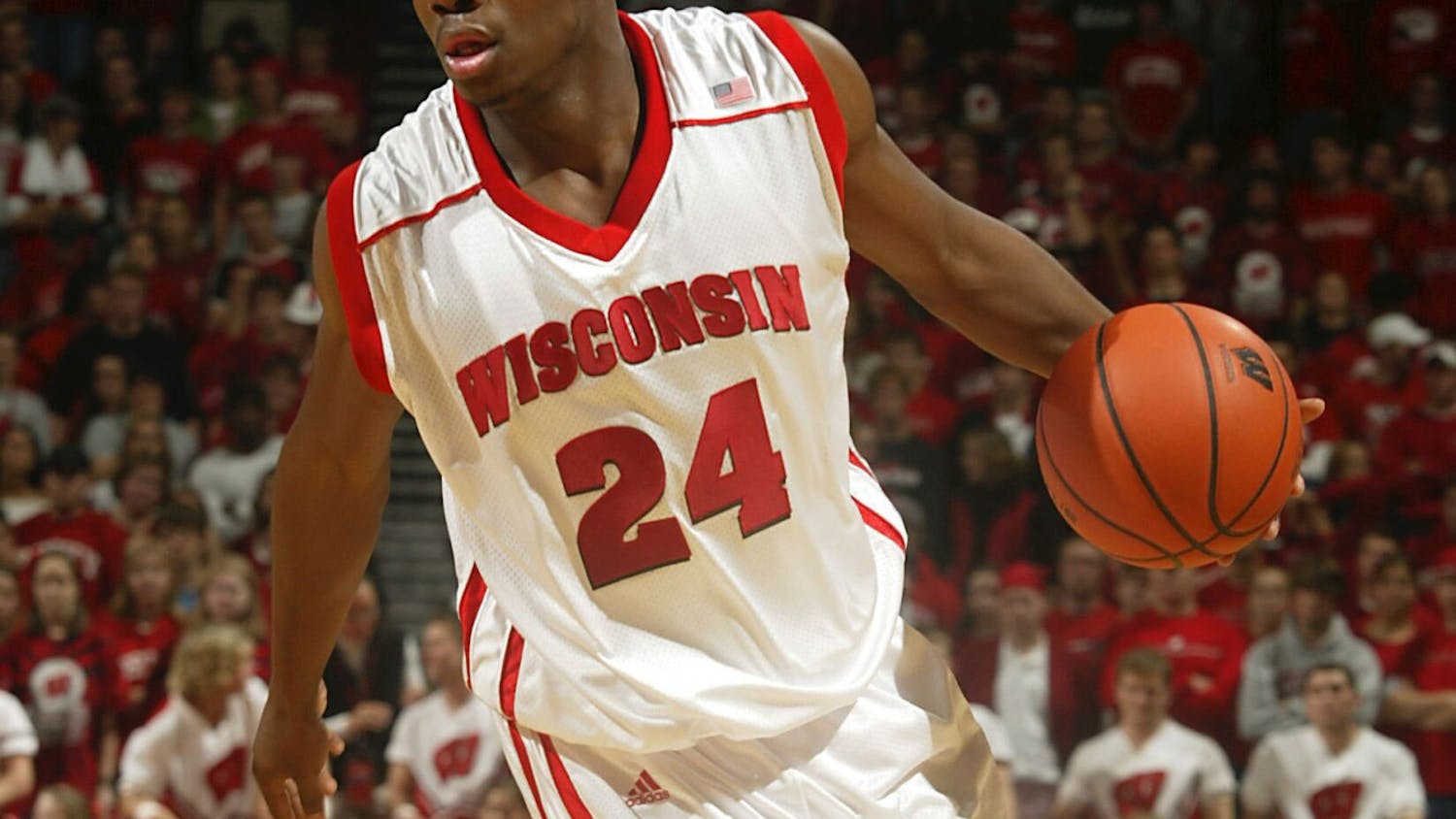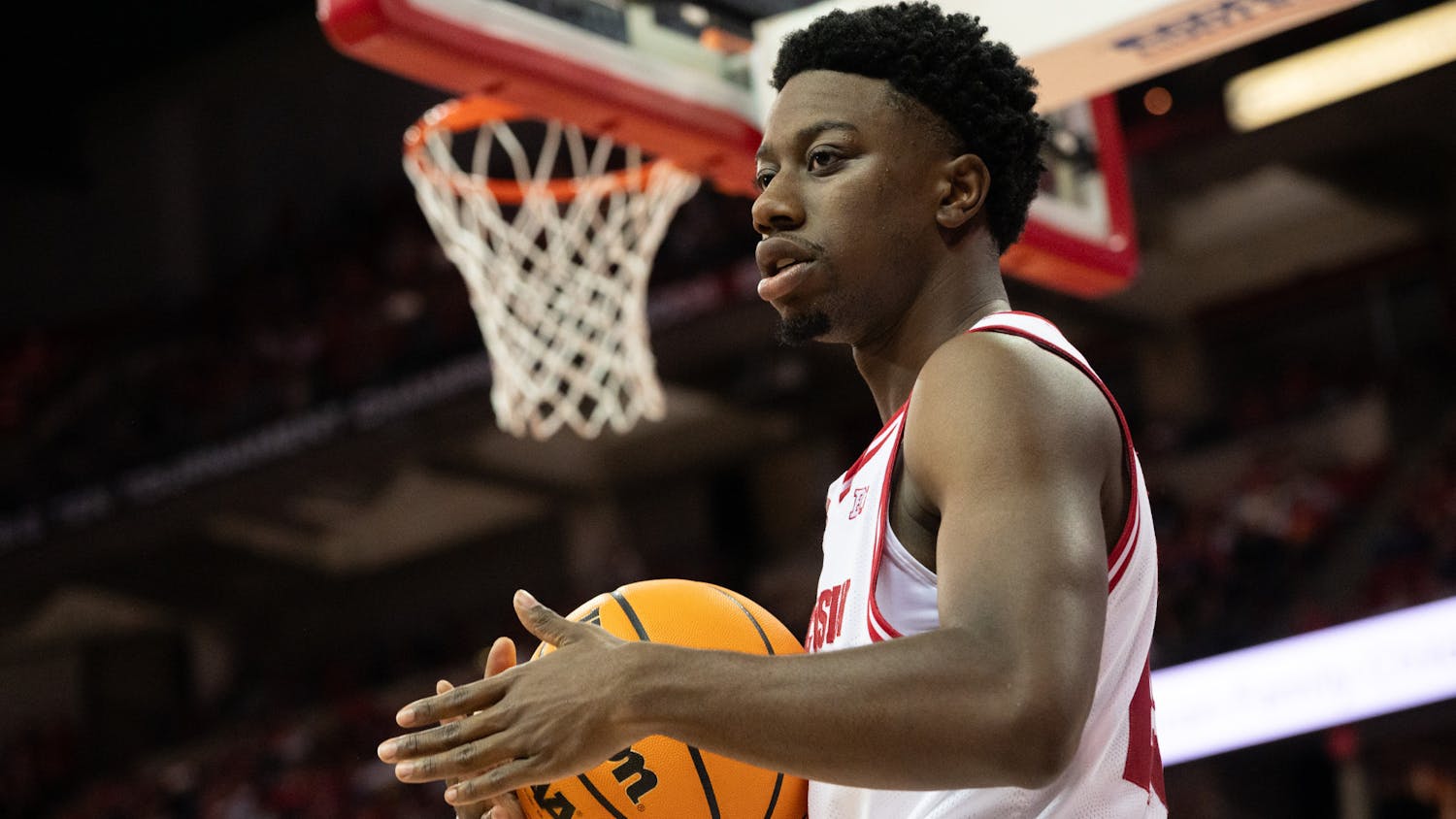Everyone in sports loves to praise the unnamed, “unsung heroes” who work behind the scenes to ensure athletes at every level have the best chance to succeed on the playing field. Quarterbacks love to shed praise on their linemen, pitchers love to talk about the impact of a catcher on a perfect game and golfers always give credit to their caddies for keeping them calm en route to a major championship.
Across the sports world there is perhaps no more “unsung” group of individuals than college basketball managers. Whether it is wiping up sweat on the practice floor to prevent injury or tracking stats for the coaching staff to go back and analyze, managers are the backbone of any major program, making sure coaches and administrators can focus all of their time and energy on the court.
“We always say it’s impossible to say what our job description is,” senior manager Jeremy Davis said. “We are always there to do whatever the coaches need us to do or the players need us to do.”
“If [the managers] are not around, things just don’t run as smoothly,” senior forward Mike Bruesewitz said.
Though the UW basketball program provides a stipend for its more experienced managers, nearly all of them apply for the job simply out of a passion for the game of basketball and a desire to stay involved at the sport’s highest level. Many managers are former high school players and see the experience not only as a way to stay close to the game, but also as a starting point on the path toward becoming a coach at the high school or college level.
“It’s going to be something huge that I’m going to be able to put on my resume,” Davis said. “Just seeing day-in and day-out how a successful program works has been a huge reward.”
Although college and NBA coaches are generally former players, a growing contingent comes from the managerial ranks. Former UW-Milwaukee and Tennessee head coach Bruce Pearl began his career as a student manager at Boston College, while Detroit Pistons head coach Lawrence Frank served as a manager under Bob Knight at Indiana.
The growing prevalence of rising up from the ranks of the student manager comes as no surprise to Wisconsin assistant coach Gary Close, who has seen several former Badger managers go on to successful careers in both collegiate and professional basketball.
“What better way [to train for a career in coaching]?” Close said. “[At Wisconsin], you get a chance to watch coach Ryan, one of the best in the country. That’s a pretty neat opportunity and they have taken advantage of it.”
Current UW Director of Basketball Operations, Luke Wainwright, spent three seasons as a manager, staying in the program as a program assistant prior to taking on his current position in 2010. After starting as a player at Division III Edgewood, Wainwright transferred to Wisconsin looking to find his way into the coaching ranks.
Now charged with making sure everything behind the scenes goes smooth for the Badger program, Wainwright knows first-hand how important the time spent as a manger was in setting a foundation for his career in the game.
“Being a manager was very important and very useful for me to be in the position I’m in now,” Wainwright said. “It really helps you gain perspective on how much time and effort and work it actually takes to make things seem as if they are going really easy.”
While most programs have a managerial staff between four and six, Wisconsin has 19 managers working in the program. With the larger numbers, UW is able to do much more work behind the scenes than many other programs, taking care of every intricate detail that goes into the production of Big Ten basketball.
“We have more jobs to do on game day than other schools,” junior manager Marc VandeWettering said. “There are many different jobs that need to get done on game day and it takes a lot of people to get them all done.”
Having more personnel also allows the Badgers to lighten the workload of some of its hardest working staff members.
“We can spread out the jobs. We don’t have to be at practice every single day,” Davis said. “There’s a group that likes being there every day, but we also have guys who—that’s not their number one priority—and that’s great, too.”
Even with 19 managers, the demands of being a student manager far surpass those of an ordinary campus job. As is the case with the student-athletes, the odd hours of lifts, workouts and practices, combined with the travel demands, can make balancing school and work difficult to handle.
“[College basketball] is really a full-time job,” junior manager Brandon Zall said. “When you are on a flight and you have to study and [prepare for] a game the next day, you’re not going to be able to study and put your all into it.”
Nonetheless, managers have down time on road trips during which they can get work done for school, even made easier perhaps in a setting free from the distractions of college life.
“You’re going to have to make time and you have to plan ahead, but it’s actually a good thing.” Zall said. “I think it has helped me become a better student.”
At other schools, the 24-7 workload often leaves managers unable to have a life outside of basketball. But at Wisconsin, managers share the workload and cover all the needs of the program while still maintaining a life outside the confines of the Kohl Center.
“Sometimes it’s like having a brother,” Zall said of being a manager. “You get sick of them once in a while and it’s good to have a life outside of it.”
Still, Wisconsin managers certainly don’t restrict their time spent together to merely games and practices. This team within a team has its own intramural basketball and flag football teams. Every Monday night the “Towel Up” team plays in the recreational league at the SERF, with several UW players typically on hand in support. No one shows up more regularly than sophomore forward Frank Kaminsky, who has taken on the informal job of coaching the “greatest show on SERF.”
“They are the ones that do stuff behind the scenes that maybe not everyone notices,” Kaminsky said. “They always treat us well, so I just want to give back a little of what they do for us.”
“We put in a lot of time and do a lot of dirty work for them,” Vandewettering said. “So for them to come and kind of pay us back for all that work and show their support for us really means a lot.”
Players are the first to tell you about the hard work student managers put in behind the scenes to make their jobs easier. Although they are not listed on the roster and don’t make it onto the stat sheet, managers are an integral part of the work that goes into fielding a team capable of winning on the highest level.
“On scout team we are out there 30 minutes early learning the plays,” senior guard Dan Fahey said. “The managers are out there an hour early getting the floor ready.”
“These guys are coming in and [putting in the work], they just aren’t getting the applause,” Bruesewitz said. “I know for a fact I’m not getting better without [their help].”
In addition to playing intramurals, managers take advantage of another major perk that comes along with the job.
“We get to play night ball and noon ball at the Kohl Center,” Zall said when asked about his favorite part of the job. “I never take it for granted for sure. We play probably 20 or 30 times a year and every time I just go out and pretend it’s the NCAA Tournament because it’s incredible.”
On one level, being a Wisconsin student manager is just another campus job, albeit a pretty unique one at that. But being a manager is so much more than simply putting in the hours. It is about having a passion for Wisconsin basketball and an understanding of how important the seemingly trivial task is in the team’s on-court success.
“People enjoy being around here,” Wainwright said. “As thankless a job as it is, I think the word gets out.”
“A lot of guys from other schools do it just to have a job around campus, but for us it means a lot more,” VandeWettering said. “This is as close to the team as you can be without being on it and we really take pride in being a part of Wisconsin basketball.”






